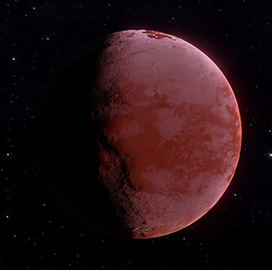
Dragonfly mission
Titan-Bound NASA Spacecraft to Assess Saturnian Moon’s Chemical Makeup
NASA’s Dragonfly mission will carry a spectrometer intended to reveal the chemistry of the surface of Titan, one of Saturn’s moons.
Set to launch in 2027 and arrive at its destination in the mid-2030s, a robotic rotorcraft lander will travel to several points on the Titanian surface and collect minuscule samples using the Drill for Acquisition of Complex Organics. It will then use the Dragonfly Mass Spectrometer to break the samples down into molecules with a laser and pass them under sensors for analysis.
Melissa Trainer, a Titan expert at Goddard Space Center and principal investigator on Dragonfly, is leading the development of DraMS. She explained that the molecules to be examined are organic, meaning they contain carbon and are a key building block of living things.
DraMS was partially built by the Goddard team that built the sampling tools aboard the Mars Curiosity rover. According to Trainer, the instrument is adaptable to different surface sample types because it is modeled to apply existing approaches, NASA said Saturday.
Recent image captures by the Cassini spacecraft indicate that Dragonfly will likely encounter dune fields and frozen bedrock environments on Titan.

Category: Space




